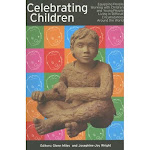
Last night I finally got around to watching 'Exodus' - the television film directed by Penny Woolcock based on the second book of the Old Testament. I am at the best of times sceptical of bible-to-film productions especially where they are rearranged in to a 21st Century context. After watching the film my initial thoughts were as follows:
- The setting, visual elements and cinematography were brilliantly done. It had a very apocalyptic feel to it. The use of amateur actors, especially those with special needs, was wonderfully effective.
- It was far too long and the script was poor. Film-wise it was on the same wave as Titanic, too much time for not a lot to happen.
I did a little research of the piece on the net to see what other people thought and found a review from the Telegraph saying this:
"More surprisingly still, Woolcock retained the central religious element of the original version – although not in a way that religious viewers will necessarily have found comfortable. Indeed, by sticking so close to the biblical story, Exodus reminded us just how brutal that story is. "
Source:
This brings me to my third thought regarding the film which is this: The whole production completely misrepresented and betrayed the relationship between Moses and God. When reading the bible it was clear to me exactly how direct God was with Moses. God appeared to Moses in a face-to-face encounter and throughout the story there is a conversation going on between them. The relationship portrayed in the film was far too subtle and indirect. The whimsical voices gently speaking to Moses were nothing like the powerful experiences depicted in the bible. Not once in this film did Moses fall to the ground in fear.
I always allow room for creative licence but I didn't feel that in this case it was justified. Interestingly, I wonder if this is why the article above stated that 'religious viewers' (whoever they might be) may have found it uncomfortable. If by 'retaining the central religious element' they mean that yes, God was mentioned once or twice and his presence merely hinted at then they are clearly mistaken. The main point of God being in this story is that He leads his people to freedom and how He uses a mediocre guy like Moses to lead an entire nation out of slavery through deep political minefields and what could be classed as spiritual warfare. The film portrayed Moses as the hero and showed very little input from God which I found altogether disappointing.
However, despite that slight setback, the film did mange to bring some reality to the story for me. It can at times be very difficult to make even such a powerful bible story come alive when simply reading it. Through the film my eyes were opened to to exactly how intense the whole experience was for the people and for Moses. It is tempting to think of him as the Great Leader of the Israelites, wandering around with a staff and a beard being very docile throughout the whole thing. The film helped me to capture the reality of his plight including his role as a father and husband along with the frustrations of leading a people who were volatile and zealous.
Although the film may have been a successful political statement regarding terrorism, 21st Century warfare and the treatment of refugees in Britain today, in my opinion, it could not be classed as an accurate reflection of the biblical story it sought to portray.
Did anyone see it and think otherwise?




No comments:
Post a Comment